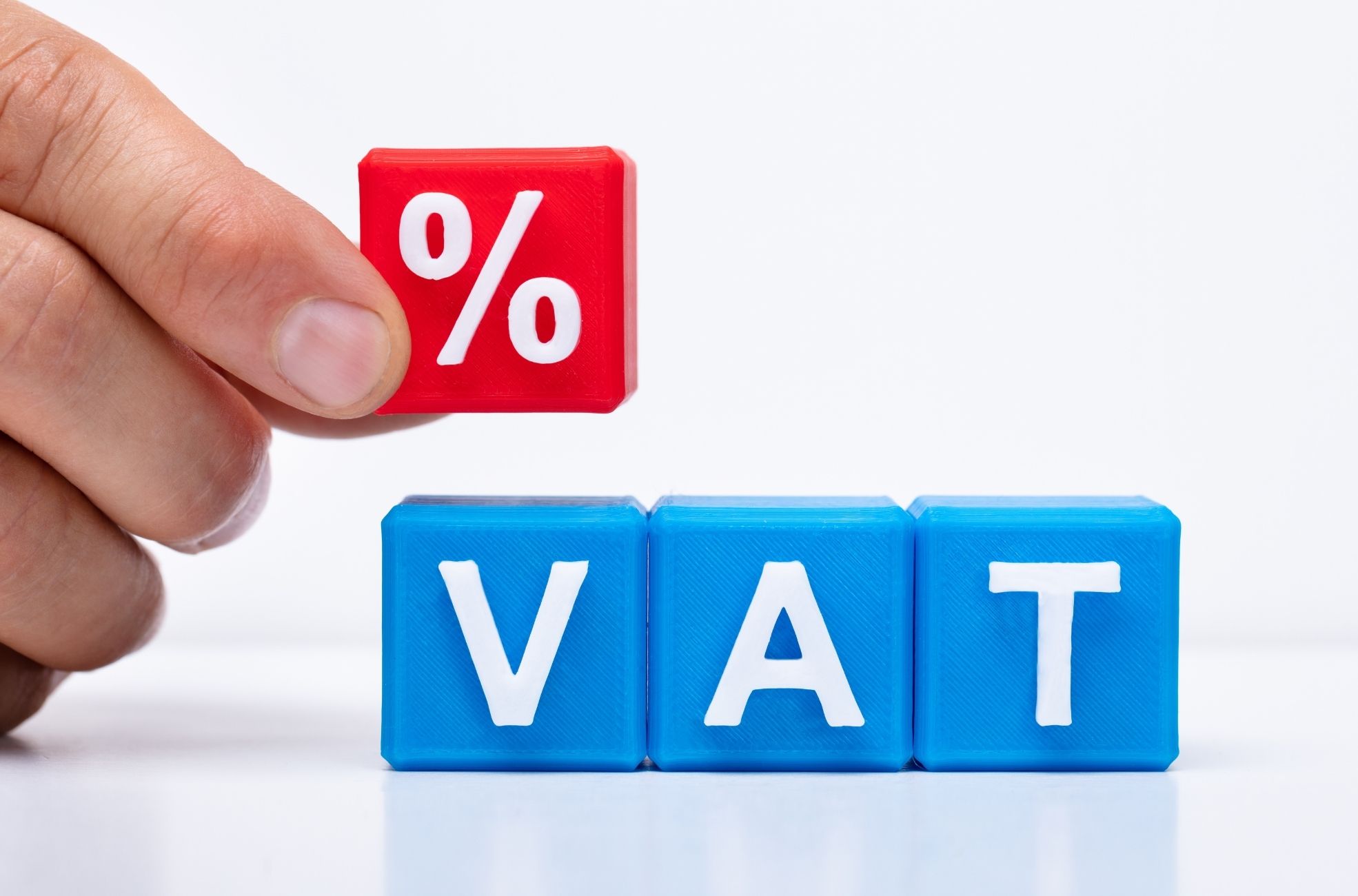Are you a foreigner residing or planning to move to the United Arab Emirates (UAE)? Getting to know its unique tax system is key for your stay. Seize the opportunity to live in a country with no income tax, tax-free zones for businesses, and a Value Added Tax (VAT) levied at a low 5% rate on goods and services.
This article sheds light on everything you need to know about taxation in the UAE, from tax laws to VAT implications, and offers helpful tips for tax filing. With upcoming changes like the introduction of a federal income tax and corporation tax, staying informed is essential. So, let’s get started and find out how you can benefit from the UAE’s tax system.
Understanding Taxation in the UAE
Basic Overview of the UAE Tax System
The United Arab Emirates (UAE) tax system is unique and differs significantly in inheritance tax from many other countries. One key feature you’ll notice is the lack of income tax for employees, no matter their residency status. This absence of income tax is a significant draw for many expatriates who choose to work in the UAE.
However, if you’re not a tax resident of the UAE, you might still have to pay income tax in your home country. This depends on your home country’s tax laws.
In addition to no income tax, the UAE also offers tax-free zones for businesses and no property tax levies. They’ve also implemented a Value Added Tax (VAT) system. The VAT was introduced in January 2018 and is levied at a relatively low rate of 5% on goods and services sold. Certain items are exempt from this tax.
Evolution of Tax Laws in the UAE
The tax laws in the UAE have seen significant changes over the years. Initially, the discovery of oil in the mid-1960s meant the UAE didn’t need to impose taxes. However, in recent years, the UAE has been striving to export taxes to diversify its economy and government revenue sources. This is to move away from reliance on oil and other hydrocarbons, with taxes becoming a significant source of revenue diversification.
A significant change in the UAE’s tax laws is the introduction of a federal corporation tax. This tax will be implemented from 1 June 2023. It’ll be charged at a flat rate of 9% on businesses with net profits of AED 375,000 or more.
However, you should note that most businesses in the UAE currently don’t pay corporation tax. The exceptions are foreign oil companies and branches of foreign banks.

The Concept of Tax Residence in UAE
In the UAE, tax residence isn’t determined by personal income tax either, as there’s no income tax levied on those working there. However, the concept of tax residence is still relevant for those who may be required to pay income tax in their home country.
It’s also important to note that the UAE has signed up to the Common Reporting Standard (CRS). This allows for the exchange of tax data between participating countries. This could aid in the investigation of tax evasion.
UAE Tax Treaties with Other Countries
The UAE has established numerous Double Taxation Agreements (DTAs) and Bilateral Investments Treaties (BITs) with other countries. These treaties are designed to encourage strategic global partnerships. They aim to exempt or reduce taxes on income and profits from direct and indirect taxes.
However, you should note that the United States isn’t one of the countries with which the UAE has a treaty. Therefore, US citizens and permanent residents must file expatriate tax returns with the US Federal Government every year, regardless of where they reside.
Analysis of Taxes Affecting Foreigners
Income Tax in UAE for Foreigners
As a foreigner residing in the UAE, you’ll appreciate your employer’s absence of payroll tax withholding and the lack of individual tax registration or reporting requirements. This tax-free environment extends to the capital gains tax, wealth, inheritance, estate, and gift taxes. However, American citizens residing in the UAE are still obligated to file taxes in the U.S.
VAT in UAE
The VAT system in the UAE includes certain exemptions and zero-rated conditions. These apply to goods and services exported outside the VAT-implementing GCC member states, international transportation, crude oil/natural gas, the first supply of residential real estate, and specific sectors like health care and education.
Non-resident businesses supplying VAT-liable goods or services in the UAE have no registration threshold. The mandatory VAT registration threshold for resident businesses is AED 375,000, and the voluntary registration threshold is AED 187,500.
Other Indirect Taxes Foreigners Should be Aware of
Foreigners should also be conscious of other indirect taxes in the UAE. A customs duty of 5% is typically levied on the CIF value of imports, with different rates for certain goods like alcohol and tobacco.
There are also potential exemptions and reliefs. The UAE also imposes an excise tax, colloquially known as the “sin tax”, on specific goods deemed harmful to human health or the environment. Hotel levies and property transfer tax are standard, with each Emirate administering these differently.
For example, in Dubai, a Tourism Dirham fee is charged to hotel guests and tenants of hotel apartments, and a 7% municipality fee is levied on each hotel sale.
The Absence of Property and Wealth Tax
The lack of property and wealth tax further enhances the UAE tax system’s appeal to foreigners. However, most Emirates levy a municipality tax on properties, typically based on the annual rental value. As the tenant, you’re usually responsible for this tax. A registration fee may also be levied on land transfer or real estate property ownership.
For example, in Dubai, a land registration transfer fee is charged at a rate of 4% of the property’s fair market value on any third-party sale.
Tax Obligations for Foreign Companies
Understanding your tax responsibilities is crucial as an international entity operating in the UAE. The tax environment in the UAE is multifaceted and can fluctuate based on your business’s nature and location.
The Corporate Tax in UAE
The recent implementation of the Federal CT Law is noteworthy. This regulation applies to all commercial activities across all Emirates, starting from fiscal years on or after 1 June 2023.
The law establishes varying tax rates contingent on your business’s taxable income. For example, companies with taxable income not exceeding AED 375,000 are exempt from tax. However, taxable income surpassing AED 375,000 attracts a tax rate of 9%.
This tax reform is a part of the UAE’s strategy to augment non-oil revenue and sustain its reputation as a commercial hub.
Tax-Free Zones for Foreign Businesses
The UAE boasts over 30 free zones. These zones have unique tax, customs, and import regimes and are structured around specific industry categories with regulations and import and export taxes.
Operating your business in one of these zones could mean a 0% tax rate, even when interacting with the mainland on strategic activities like manufacturing, goods processing, and logistics services.
These zones offer numerous advantages. You can completely own your business, enjoy 100% import and export tax exemptions, repatriate all your capital and profits, and receive corporate tax exemptions for up to 50 years.

Taxes on Branches of Foreign Companies
Managing a branch of an international company in the UAE requires familiarity with the UAE CT Law. Under this regulation, branches of non-resident entities might be considered Permanent Establishments in the UAE. The income attributable to such branches could be subject to UAE CT.
However, the UAE doesn’t impose a branch profits tax. Profit repatriation between branches and their head offices isn’t subject to withholding tax or other forms of repatriation tax.
Understanding Double Taxation Avoidance Agreements
DTAAs are treaties between two or more countries to prevent double taxation on the same income. The UAE has signed DTAAs with several countries to protect international companies operating in the UAE from the risk of double taxation.
If the UAE has a DTAA with a tax haven in your home country, you can claim relief from UAE tax on certain types of income. It’s advisable to consult with a tax advisor to understand how these agreements could affect your tax responsibilities in the UAE.
Practical Implications of VAT for Foreigners
How VAT is Imposed in the UAE
The VAT system in the UAE may slightly affect your cost of living, depending on your lifestyle, rental tax, and spending habits. The UAE government utilises the revenue generated from VAT to deliver high-quality public services.
If you’re operating a business in the UAE and your taxable supplies and imports exceed AED 375,000 per year, VAT registration is mandatory.
This also applies to non-UAE-based companies making taxable supplies in the UAE if there’s no one else obligated to tax residents who pay the due tax on these supplies in the UAE. Voluntary registration is an option if your supplies and imports exceed AED 187,500 annually.
VAT Refunds for Tourists
Foreign businesses or tourists are also subject to VAT. However, you can recover the VAT you incur during your stay in the UAE. You’ll pay VAT at the point of sale but can claim a refund on VAT paid on purchases you made during your visit.
This refund process is facilitated through an electronic system that connects retailers registered in the ‘Tax Refund for Tourists Scheme’ with all ports of entry and exit from the UAE. Ensure to validate the transaction at the airport within 90 days of the purchase date.
Decrease in purchasing power due to VAT
The introduction of VAT may have affected your purchasing power in the UAE, depending on your lifestyle and spending habits.
VAT Reverse Charge Mechanism
The Reverse Charge Mechanism (RCM) is another aspect of the VAT system. Under the RCM, the buyer or end customer pays the tax directly to the government. This mechanism relieves non-resident suppliers from the need to register and account for VAT in their buyers’ location city tax due.
The RCM is primarily used for cross-border transactions. It applies to specific cases such as importing goods/services from other GCC and non-GCC countries, supplying gold and diamonds, and supplying crude/refined oil, among others.

Preparing for Tax Filing in the UAE
As an expatriate in the UAE, familiarising yourself with the tax landscape is crucial.
Gathering Necessary Documents
To prepare for tax filing, start by assembling the required documents. For corporate tax registration, you’ll need a copy of your Trade License, the owner’s or partners’ passports who own the licence, their Emirates ID, the Memorandum of Association (MOA) or Power of Attorney (POA), and contact details of the concerned person and the company. Additionally, the Annual Financial Audit Report is required. Having these documents ready will facilitate registration and ensure you’re equipped to meet your tax obligations.
Understanding the VAT Registration Process
VAT registration is mandatory for UAE-resident businesses whose taxable supplies and imports in the previous 12 months exceeded, or are projected to exceed in the next 30 days, AED 375,000.
Non-UAE-resident companies making taxable supplies in the UAE must also register for VAT, irrespective of the value of their taxable supplies and imports. The VAT registration process can be completed on the EmaraTax platform, accessible round the clock.
Tax Filing Deadlines
Keeping track of tax filing deadlines is essential to avoid penalties. Businesses have a nine-month window from the end of the tax period to submit their tax return and pay the federal corporate tax. Annual U.S. tax return filing is mandatory for American and other tax in the Uae..S. Green Card holders residing in the UAE.
Penalties for Non-Compliance
Non-compliance with tax regulations can result in substantial penalties. These penalties, introduced in August 2023, can be imposed for not submitting tax declarations on time, late payment of income taxes, and not maintaining the records and information as required by the Corporate Tax Law.
Penalties can also be imposed for not notifying the Federal Tax Authority about any changes in their tax records. Therefore, staying informed about your tax obligations and ensuring timely compliance is crucial.
Navigating the UAE Tax Landscape
The tax system in the UAE offers significant advantages for foreign workers and businesses, from the absence of income tax to special tax-free zones.
While the landscape is complex, a thorough understanding of the rules and regulations can help ensure compliance and maximum benefit from the unique framework. The UAE has been steadily diversifying its revenues from oil reliance, with taxation emerging as a key tool for government revenue.
Thus, an informed approach to UAE’s taxation system is beneficial for all foreigners living or intending to do business here. It’s always advisable to seek professional advice when dealing with taxation matters to capitalise on the opportunities and avoid pitfalls.









